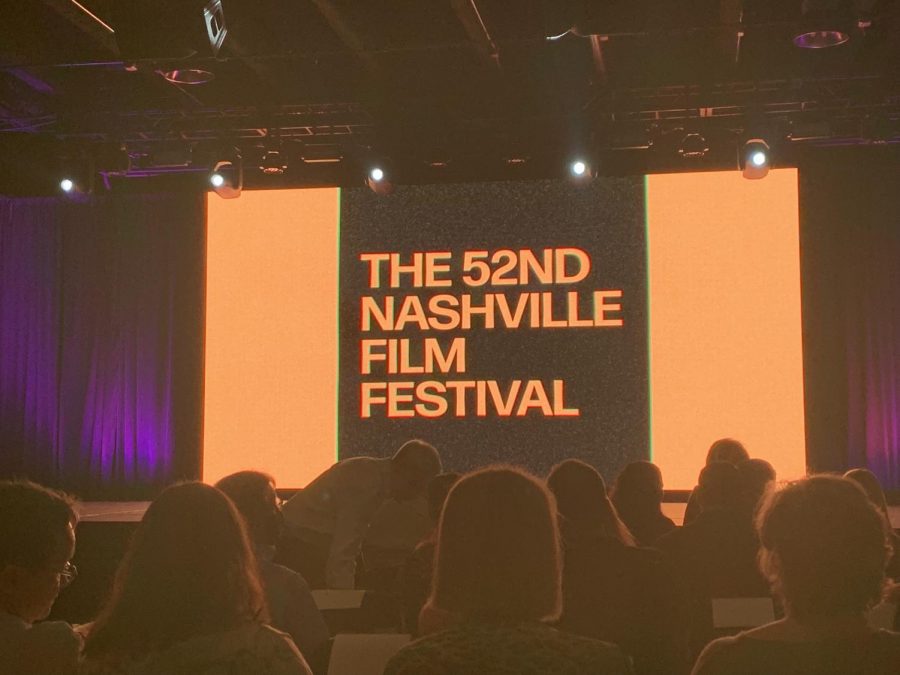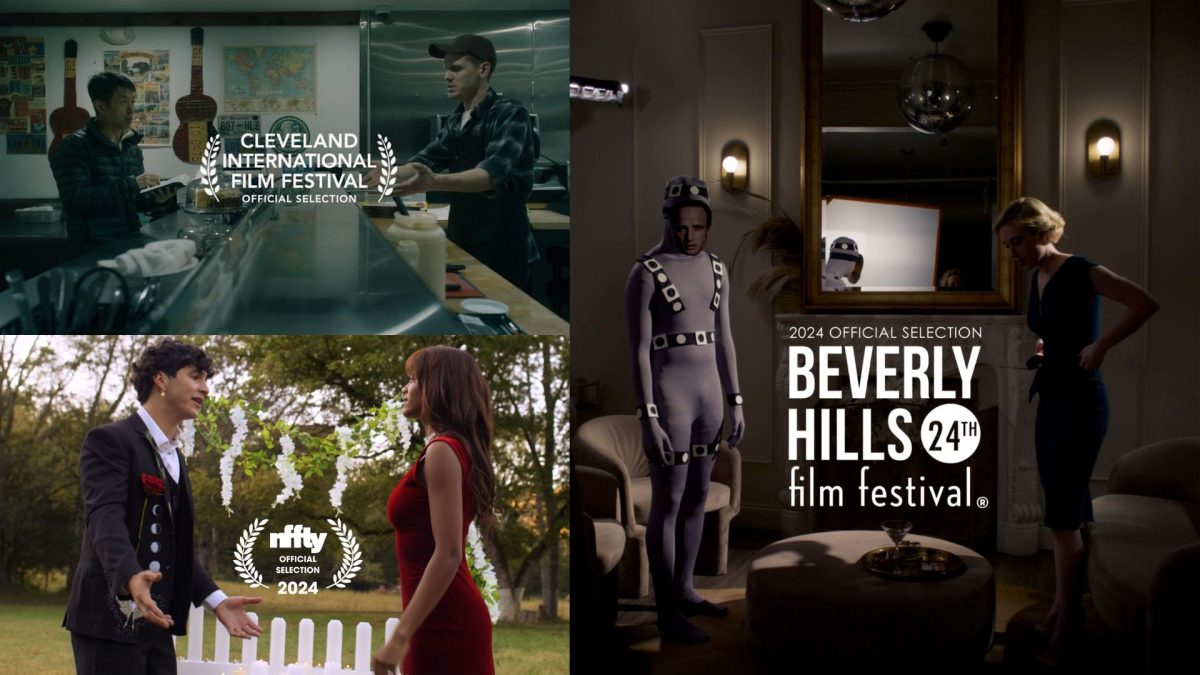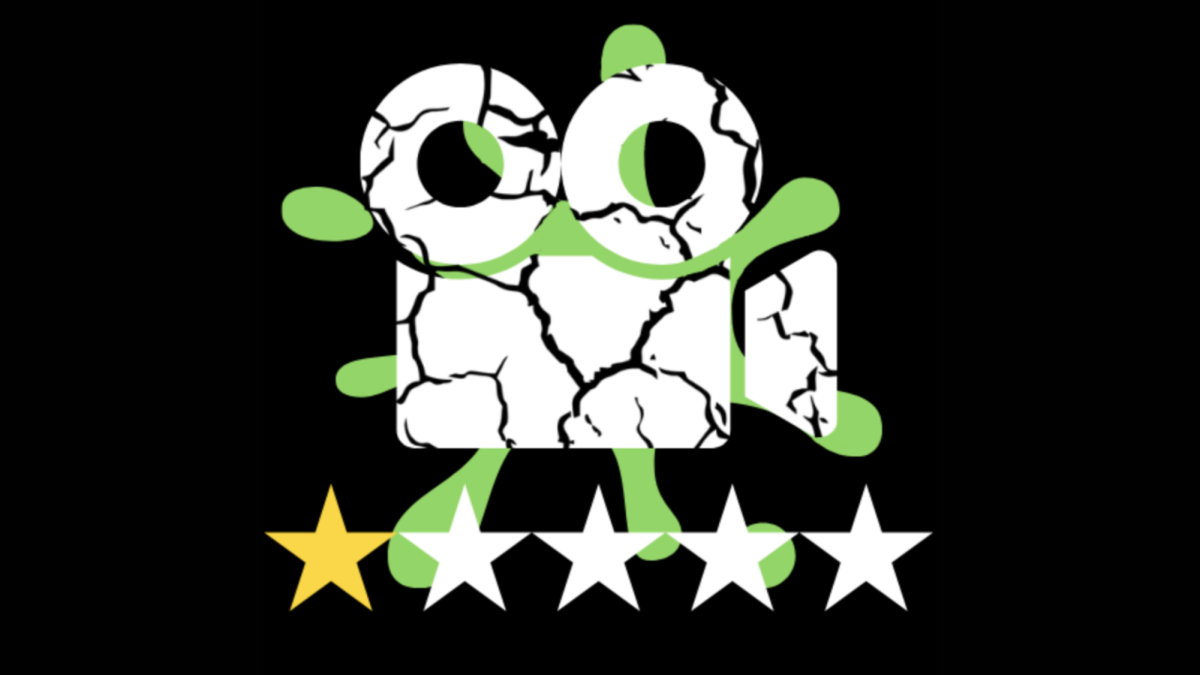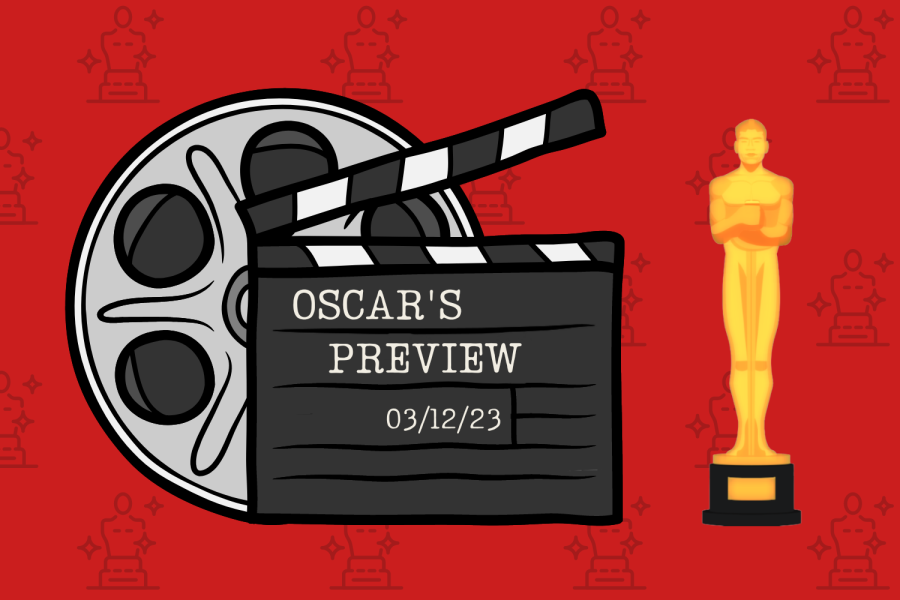Ok, maybe we didn’t sneak in. We were invited, which is a flex our friends will keep hearing for the foreseeable future. The truth is, when we got there with our suits on, we looked so spiffy that they didn’t even check if we were supposed to be there.
The event we “snuck” into was the Nashville Film Festival’s red carpet and screening of “Old Henry,” an old-fashioned western starring Tim Blake Nelson and Gavin Lewis. “Old Henry,” which had the honor of premiering at the 2021 Venice International Film Festival, was also screened in Nashville as it was a local production.
At the red carpet, while we were standing at our high-top table, pretending to know what we were doing, we talked about the fact that Tim Blake Nelson was too big of an actor to show up to the screening. After all, he did star in the Coen Brothers’ “Ballad of Buster Scruggs” and “O Brother Where Art Thou?”, where he shared the screen with George Clooney, Liam Neeson and James Franco. But then, just as we finished our conversation, out walks Nelson—and out comes our inner fanboys.
“Can we just walk up and introduce ourselves?” we asked each other back and forth for a solid fifteen minutes. Then Nelson vanished from the red carpet, taking our hopes and dreams with him.

After we got past our disappointment, we headed into the screening to watch “Old Henry,” an action-western directed by Potsy Ponciroli that felt inspired by westerns of the past. The film follows a secretive widowed farmer (played by Tim Blake Nelson) and his son (played by Gavin Lewis), who wants to leave the farm and start his own life. Henry, the farmer, finds and takes in Curry, an injured man carrying a satchel full of cash. Afterward, a trio of men show up, claiming to be lawmen in pursuit of the injured man, but Curry says otherwise. The farmer must decide whom to trust, all while trying to escape his past and protect his son.
The film is close to perfection in a technical sense. The cinematography, which manages to fit the vastness of the countryside into the silver screen with vibrant colors and innovative camera work, embodies exactly what director Potsy Ponciroli envisioned for the movie.
“We wanted big landscapes,” Ponciroli said in the Q&A after the screening. “Westerns have to be grand.”
“Old Henry” owes most of this grandeur to its set: the Tennessee countryside. Both Ponciroli and producer Shannon Houchins are Tennesseans and worked hard to make sure the movie was shot in their home state.
“It would not have been the same movie,” Houchins said, referring to other potential filming locations.
The director remarked on his inspirations for the ambiance of the film, citing western masterpieces “There Will Be Blood” and “The Assasination of Jesse James by the Coward Robert Ford”.
The film’s relatively small set fits the restrained tone of the film. The titular character’s attitude and the well-crafted pacing create an atmosphere that feels held-back yet ready to explode. The movie mostly owes this to the excellent portrayal of farmer Henry by Tim Blake Nelson, who contributed heavily to the making of the film as the main character and executive producer.
“This is a character that wants to reveal as little as possible about himself,” Nelson said in reference to Henry’s persona.
Nelson and Ponciroli had the intention of making Henry “laconic”—not just in words but in gesture. Nelson joked about how this was the first role he was offered where the character was described as “old.”
Accompanying farmer Henry on the screen was his son Wyatt, played by the dazzling Gavin Lewis. When asked about his choice of Lewis for the role, Ponciroli explained how there was something intriguing about the young actor.
“He has a modern look,” Ponciroli said.
While this is an ironic characteristic for someone in a period piece, it fits perfectly with the aspirations of Wyatt, who wants nothing more than to leave the hog-feeding life behind and see the world.
Although the movie’s characters excelled in their mannerisms, costumes and general demeanor, one drawback of the film was their lack of real depth or progression. The people on the screen felt one-dimensional: the old man is old and grumpy, the young kid is ready to grow up and that’s about it. Even the villain of the movie, played by the charismatic Stephen Dorff, only possesses one trait, which is being an overall terrible guy—evident by the director’s choice of making the character blatantly racist just to drive home the fact that he’s there to simply be the archetypal evil character.
Additionally, as is common in period pieces and similar westerns, understanding what some of the characters were saying was hard due to their accents and manner of speaking. There was a lot of mumbling throughout the movie, made more obvious by the lack of subtitles at the screening.
However, this movie was not about the dialogue; it was about the action: violent, loud, visible action. The film is an action-western but doesn’t make the mistake Hollywood blockbusters often do—it takes its time to get to the action. Ponciroli recognized that violence is much more powerful when the movie makes you wait for it, driving home the impact of the blood and gore of the oncoming slaughter. However, while we enjoyed the violence ourselves, we must admit that the crowd of Tennesseans cackling after every on-the-mark knife or axe swing made us a bit concerned for the state we now live in.
We thoroughly enjoyed this screening of “Old Henry” and the overall event experience of the Nashville Film Festival, including the red carpet and Q&A with the cast and crew. Movie lovers, we highly recommend seeing the film or attending next year’s festival—which usually means only attending the screening. But if you want to see the red carpet, just remember: you can get in anywhere if you look the part and act confident.








